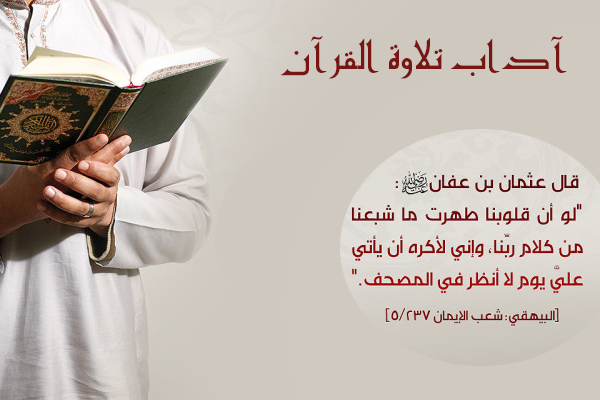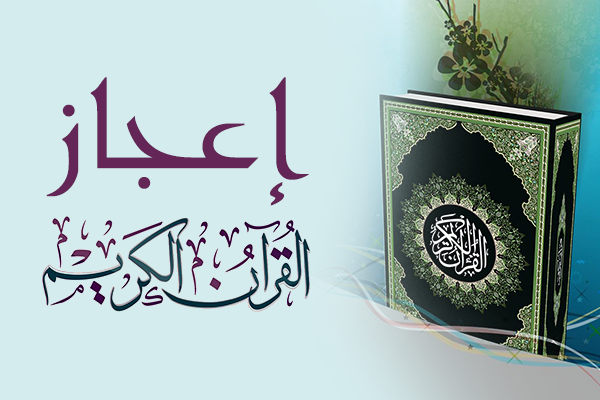
Rules before the Tilawat :
The recitation of the Holy Quran has many and varied rules that can be divided and categorized according to a time standard that takes into account and consideration some rules that precedes the recitation, during the recitation and also after it, as well as the ethics and recommendations on how to listen to the Tilawat. Before doing a Tilawat of the holy Quran, it is recommended for the Mustim to have a pure intention towards Allah and what he is going to recite. The Muslim have to clean himself from the small and big ritual impurity, to wear clean and respectfull clothes, especially for the women and to receive the Qibla if it is possible. Also, it is recommended to use the Siwak following the prophet PBUH, to choose a clean place and a good timing. Also, before entering into the Tilawat directly, Scholars advise Muslims to say : I seek refuge in Allah from the cursed Satan.
Rules during the Tilawat :
Once you start the Tilawat of the holy Quran, Saying « Bissmillah » is the first thing a reader should do, accompanied with a pure concentration and appreciation of the words of Allah. Also, it is preferred that a muslim reads the holy Quran with a present heart, thinking only about Allah and about strengthening the relationship with the Almighty, as it is recommended to ask for forgiveness while reading some Ayats that show the mercy of Allah. Seeking refuge the torment whenever a Muslim recites a verse about torment, and by doing « Soujoud » whenever we pass by « soujoud ». Scholars also recommend to do the Tajweed of the Quran if possible, and to try to improve and beautify our voice according to our personnal abilities, and to read the Surats and verses according to their arrangement in the Quran, and not to hurry up, to stop at the head of the verses, and not to recide the Quran while kneeling or doing « Soujoud », and not to stop the Tilawat unless something urgent comes up, or when feeling tired.
Rules after the Tilawat :
After completing the recitation of the Holy Quran, the Muslim is advised to mention Allah’s name and to ask for forgiveness and say the following : Glory be to Allah the almighty, there is no god but you, i ask for your forgiveness and to you i repent ». The muslim is mostly advised to take action, and to do what is asked from him while reading the holy Quran, and to renew the intention while reading the holy Quran, and to pledge to recite it and review it in every possible opportunity and not to abandon it , as it was said by the scholars that : [Whoever did not read the Quran has abandoned it, and whoever reads the Quran and does not understand its meaning, has abandoned it, and whoever reads it and does not practices it, has abandoned it]. In addition to that, The Muslim should close the holy Quran after finishing the Tilawat and not leave it open, he should care about it and take care of it by not putting it in a unclean place, or leave it close to the children who do not know its value yet. After the Tilawat, The muslim can ask Allah for anything, the the Du’a in that moment is answered Du’a.
Ethics and ways to listen to the Tilawat :
The Almighty Allah urged the Muslims to listen fully and carefully when others are reading the holy Quran. As he promised them his mercy when doing so : « when the Quran is recited, then listen to it and pay attention that you may receive mercy. »
In addition to listening carefully, there are some other rules and ethics to follow, such as sitting in a polite manner, concentration, reverence and serenity, and to do « Soujoud » when a reader passes by every Sajda, and not to interrupt the reciter during his Tilawat, correct the mistakes of the reader, and to do Du’aa after the reader has finished by saying : « Oh Allah, make the Quran the spring of our hearts, and the evacuation of our sorrows, worries and difficulties, Oh Allah make us from the Ahl of the holy Quran, Amen. »
Written by: Amine Hilal





Comments